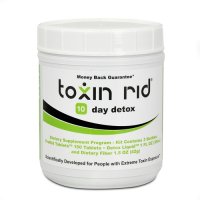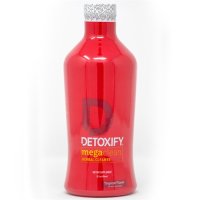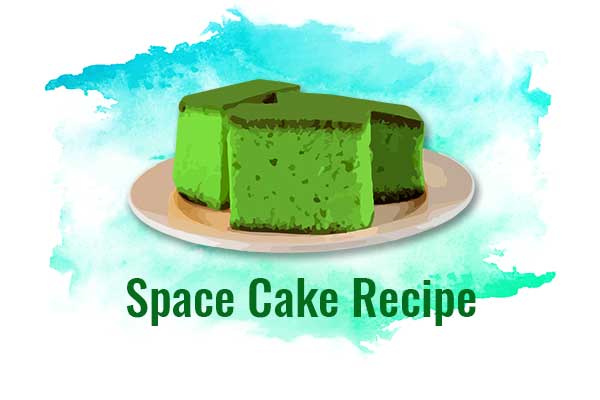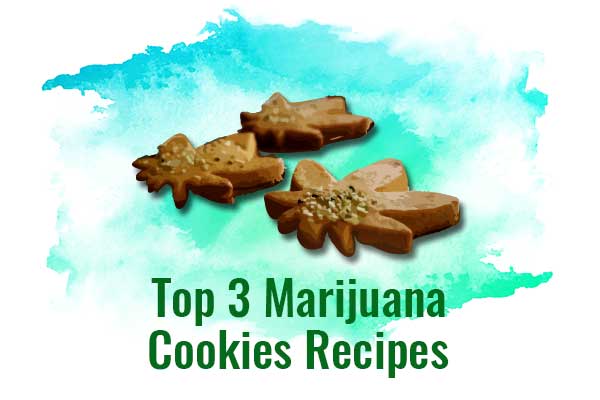How to Distillate THC?
THC distillate, also known as Tetrahydrocannabinol distillate, is a highly potent and purified form of cannabis concentrate that contains extremely high levels of THC, the psychoactive compound found in the marijuana plant. Through an advanced extraction process, THC distillate is created by separating cannabinoids, terpenes, and other molecular compounds, resulting in a pure, golden, viscous liquid.
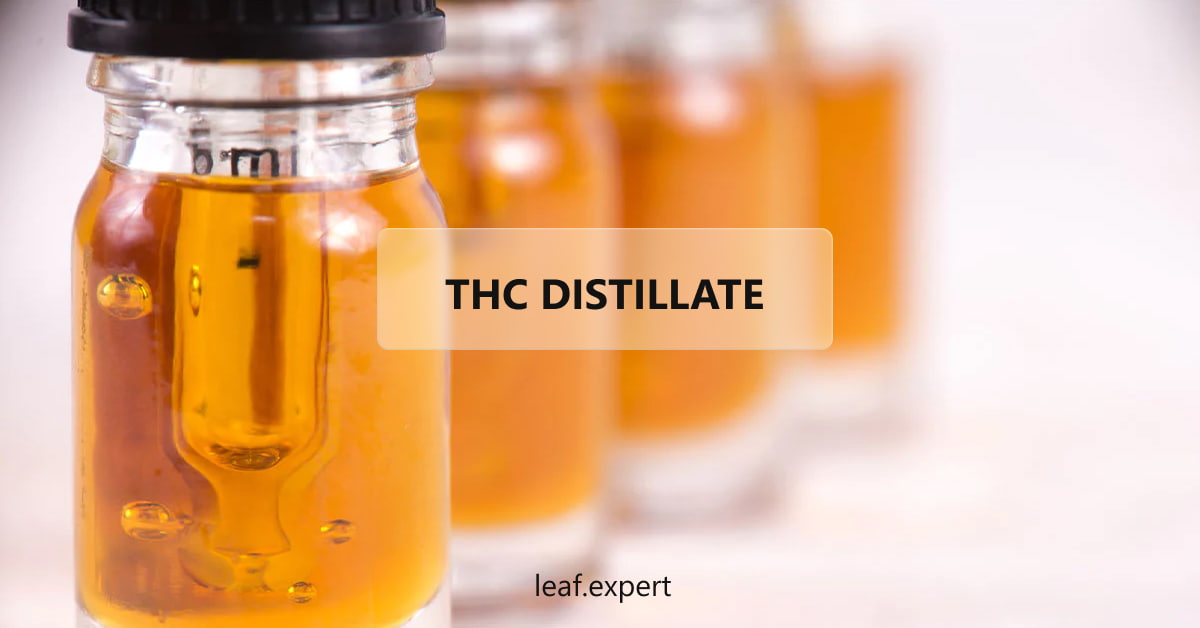
It is often considered one of the purest forms of cannabis concentrates available, as it can contain up to 90-99% THC, making it significantly more potent than traditional marijuana flowers or other concentrates.
How to Distillate THC?
THC distillation is a process that separates the pure THC compound from the plant material, leaving behind a pure, clear liquid with an extremely high THC concentration. Distilling THC can be a delicate and complicated process, but with the right equipment and knowledge, it can be done successfully. Here are the steps required to distillate THC:
1. It begins with high-quality cannabis. The starting product must be fresh, potent, and free of any contaminants.
2. Then, the cannabis is ground into small pieces, making sure to remove any stems or seeds. The finer the cannabis, the better the results will be.
3. After that, it is placed the ground cannabis into a distillation flask, along with a solvent such as ethanol or butane. The solvent will extract the THC from the cannabis. This stage is called “extraction”.
4. The next step is winterization. This involves mixing the solvent-infused liquid with ethanol and freezing the mixture. The cold temperature causes the lipids and waxes in the liquid to solidify, allowing them to be filtered out.
5. Once the winterization process is complete, the liquid is heated to a specific temperature to activate the THC. This is called decarboxylation. The process converts inactive THC-A into active THC.
6. Finally, the liquid is distilled using a short-path distillation process. This process heats the liquid to specific temperatures to evaporate and collect the purest form of THC.
The resulting liquid is a clear, golden liquid with up to 99% THC concentration. Testing and refining procedures exist to ensure that the product is pure and safe for consumption. You can see the process in this shorts video.
THC distillation is a science that requires precision and attention to detail. Through the use of these four stages, a pure and potent form of THC can be obtained. The process is becoming increasingly popular as consumers develop more sophisticated tastes and seek out the highest quality cannabis products.
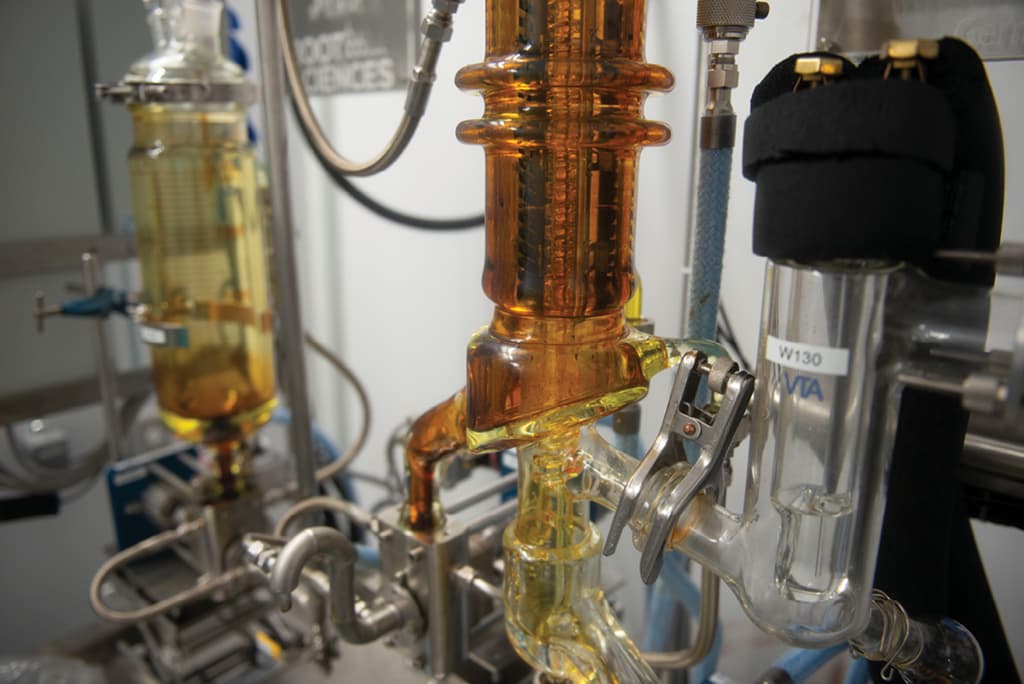
How to choose THC Distillate?
To use THC distillate, there are several methods to choose from, depending on one’s preferences and intended outcomes. Some popular ways to consume THC distillate include vaporization, dabbing, oral ingestion, and topical application. When vaporizing or dabbing, users can utilize a vape pen, electronic dab rig, or other devices specifically designed for concentrated cannabis oils.
This allows for a cleaner, more controlled experience with rapid onset effects. Alternatively, THC distillate can be ingested orally by adding it to food or beverages, taking it sublingually, or consuming it in the form of capsules. Finally, topical applications involve incorporating the THC distillate into lotions or ointments and applying them directly to the skin. This method is commonly used for localized pain relief or anti-inflammatory benefits.
Features of THC Distillate
High potency: Due to its purity, THC distillate can contain extremely high concentrations of THC, ranging from 90-99%. This makes it an ideal option for users seeking stronger effects or those with a higher tolerance to cannabis.
Terpene reintroduction: During the extraction and purification process, terpenes, which are aromatic compounds found in cannabis plants that contribute to their unique flavors and potential therapeutic benefits, are typically removed from the distillate. However, they can be reintroduced, allowing for customized terpene profiles and targeted effects.
Versatility: THC distillate can be consumed in a variety of ways, including vaporization, dabbing, oral ingestion, and topical applications, catering to diverse personal preferences.
Discretion: With no inherent odor or plant matter, THC distillate can be consumed more discreetly than traditional marijuana flowers or other concentrates.
Comparing THC distillate to classic cannabis products highlights the key differences in potency, purity, consumption methods, and customization options. While traditional marijuana flowers or classic concentrates such as hash or wax offer a wide range of cannabinoid and terpene profiles, they may not provide the same level of potency, requiring users to consume larger quantities to achieve desired effects. Additionally, classic cannabis products tend to contain more plant material, potentially leading to a harsher smoking or vaping experience with unwanted flavors.
Bottom Line
In conclusion, THC distillate is a highly potent and versatile form of cannabis concentrate that offers users numerous benefits, ranging from customizable terpene profiles to diverse consumption methods. By providing more rapid and intense effects without the need for bulky plant material, THC distillate has effectively revolutionized the cannabis industry, setting new standards for purity, potency, and user experience.
